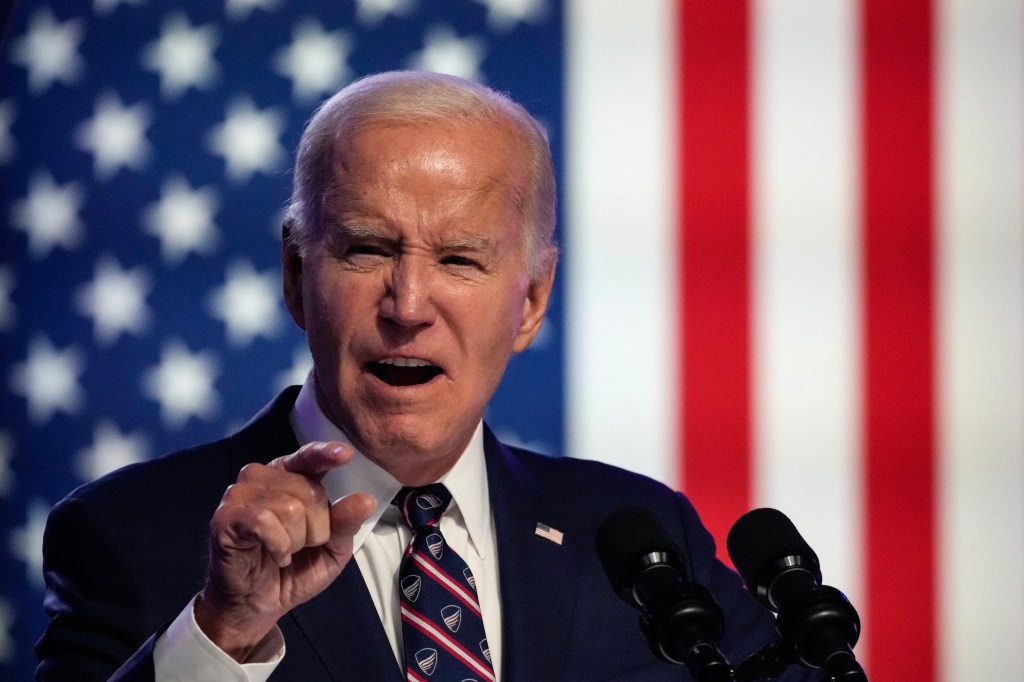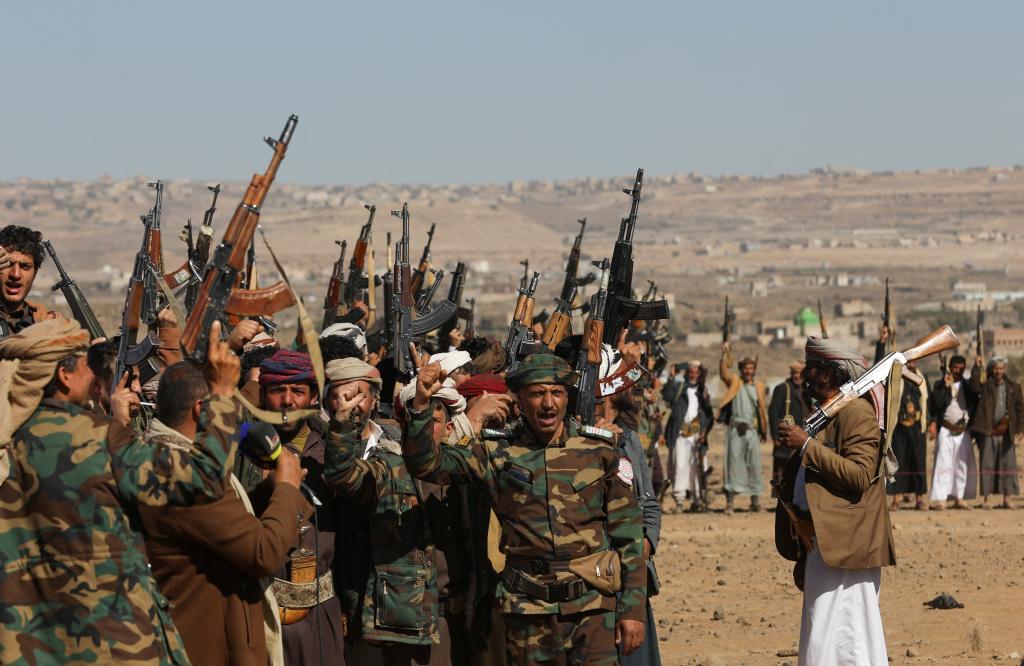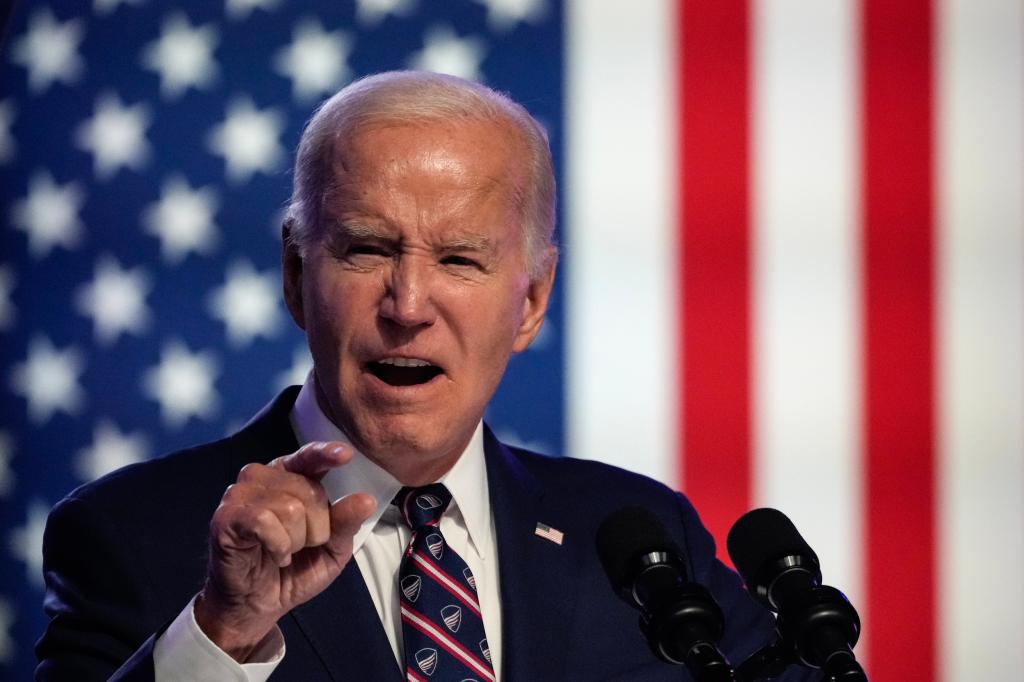Biden makes partial U-turn, puts Houthis back on terror group list after Red Sea attacks
WASHINGTON — A terrorist by any other name …
After two months of Houthi attacks on merchant vessels in the Red Sea, President Biden is finally redesignating the Iran-backed, Yemen-based group as a terrorist organization — partially reversing his decision to remove the label in February 2021.
Wednesday’s move comes 23 months after Secretary of State Antony Blinken knocked the Houthis from the lists of “Foreign Terrorist Organizations” (FTO) and “Specially Designated Global Terrorists” (SDGT), undoing one of the final actions by the Trump administration before its departure from office in January 2021.
Now, the White House has opted to restore the Houthis to the specially designated global terrorist list — but not the FTO list.
National Security Council spokesman John Kirby told reporters at the White House Wednesday that the SDGT redesignation for the Houthis allows the US a “measure of flexibility in terms of humanitarian assistance” to the people of Yemen, which has been ravaged by civil war for nearly a decade.
“A big reason why we delisted them literally on day one was to address a dire, dire humanitarian situation on the ground,” Kirby said. “Today it remains dire in many cases – the Houthis are more concerned about getting weapons and capabilities and attacking ships in the Red Sea than they are about the humanitarian situation.”
The restored SDGT designation allows Washington to “give aid organizations a higher level of comfort that they’ll be able to provide this assistance without running afoul of sanctions,” he added.
The US plans to issue “a number of licenses” to absolve organizations attempting to bring aid to Yemen from having to abide by associated sanctions, according to the NSC rep.
“The license, as you know, is basically like a waiver,” Kirby said. “It’s a carveout when you have a sanctions regime that allows for certain goods to continue to flow despite the sanctions regime.”
The licenses will authorize “certain transactions related to the provision of food, medicine, and fuel, as well as personal remittances, telecommunications and mail, and port and airport operations,” the White House said in a statement announcing the redesignation.
While administration officials say the “ultimate goal … is to move the Houthis to de-escalate and bring about a positive change in behavior,” it is unclear what effect the move will actually have.
Since Nov. 19, the Houthis have launched dozens of attacks on commercial shipping vessels in the Red Sea, claiming their assault is to protest Israel’s war on Hamas terrorists in the Gaza Strip.
In response, the US and its allies have upped their patrols of the area under their newly created “Operation Prosperity Guardian” mission, and conducted three counterstrikes on Houthi sites in the past week, according to the Pentagon — though these have not succeeded in stopping the group’s attacks.
“If the Houthis cease the attacks, we can certainly reconsider this designation,” Kirby said. “If they don’t, as the president said, we will not hesitate to take further actions to protect our people and the free flow of international commerce.”
The Iran-backed Houthis control much of western Yemen, including the capital Sana’a, which they have held since the outset of the war against the internationally recognized government and a Saudi-led allied coalition in 2014.
According to a recent estimate by the Council on Foreign Relations, 21.6 million Yemenis are in need of aid, including 11 million children, while more than 4.5 million people have been displaced.













